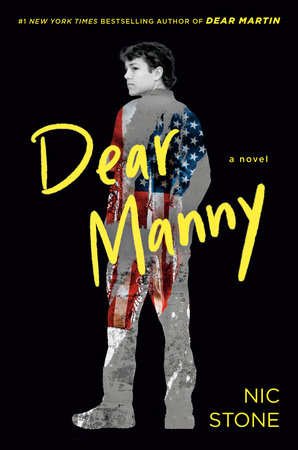NATIONAL BESTSELLER • From the New York Times bestselling author of Dear Martin comes the thrilling final installment of the series, set in college. Jared (white, Justyce's roommate, woke) is running for Junior class president. With his antiracism platform, he's a shoo-in. But he's up against the new girl, Dylan. Will Jared have to choose between his head and his heart?Jared Peter Christensen is running for president (of the Junior Class Council at his university, but still). His platform is solid—built on increased equity and inclusion in all sectors of campus life—and he’s got a good chance of beating the deeply conservative business major he’s running against.
But then a transfer student enters the race and calls Jared out for his big-talk/little-action way of moving. But what’s the right way to bring about change? As the campaign heats up, feelings are caught, and juicy secrets come to light, and Jared writes letters to his deceased friend Manny, hoping to make sense of his confusion. What’s a white boy to do when love and politics collide?
New York Times bestselling author Nic Stone writes from a new perspective in this exciting final chapter of the
Dear Martin series that examines privilege, love, and our political climate.
On sale: March 4, 2025
Age: 14 and up
Grade: Grade 9 & Up
Page count: 224 Pages
ISBN: 9780593308011
Nic Stone is the author of many novels, including the #1
New York Times bestseller
Dear Martin and its
New York Times bestselling sequel,
Dear Justyce. She also penned the young adult titles
Odd One Out, an NPR Best Book and an ALA Rainbow Book Top Ten,
Jackpot, the YALSA Quick Pick Selection that takes a searing look at economic inequality, and
Chaos Theory, a Southern Book Prize finalist and a YALSA Best Fiction Book for Young Adults Reading List selection. Her middle-grade novels include
Clean Getaway, a
New York Times bestseller, and
Fast Pitch, a YALSA Quick Pick Selection. Nic lives in Atlanta and will continue to write books that ruffle feathers.
★ "Stone has done a brilliant job with this memorable character-driven novel. It’s beautifully written with spot-on dialogue and clever plotting.
It’s great fun to read while also being thought-provoking. Dear Nic: congratulations on another great success." —
Booklist, starred review
★ "A
startlingly effective snapshot of cis white male frustration and growth, this also succinctly examines the societal effects of political moves." —
School Library Journal, starred review
"
A concise, thoughtful narrative that challenges the concept and ideals of allyship through an unexpected lens." —
Kirkus Reviews
"Stone again deals thoughtfully with issues that are
relevant to teens today." —
The Horn Book

















